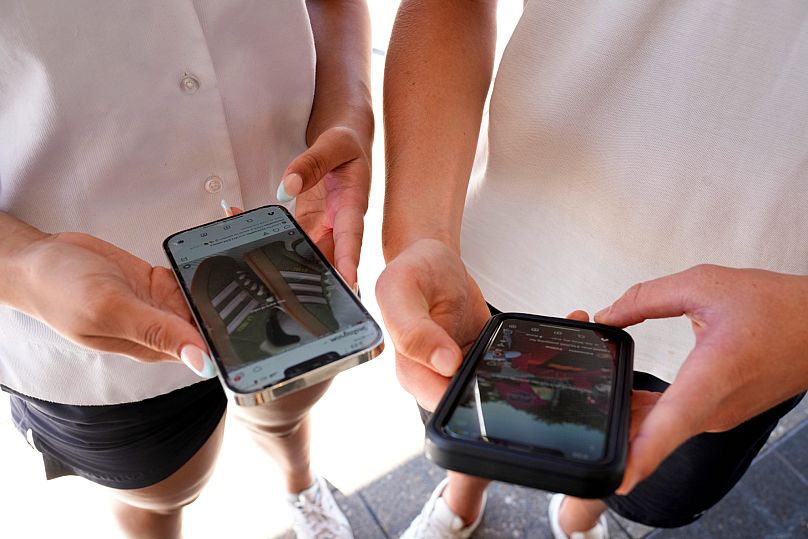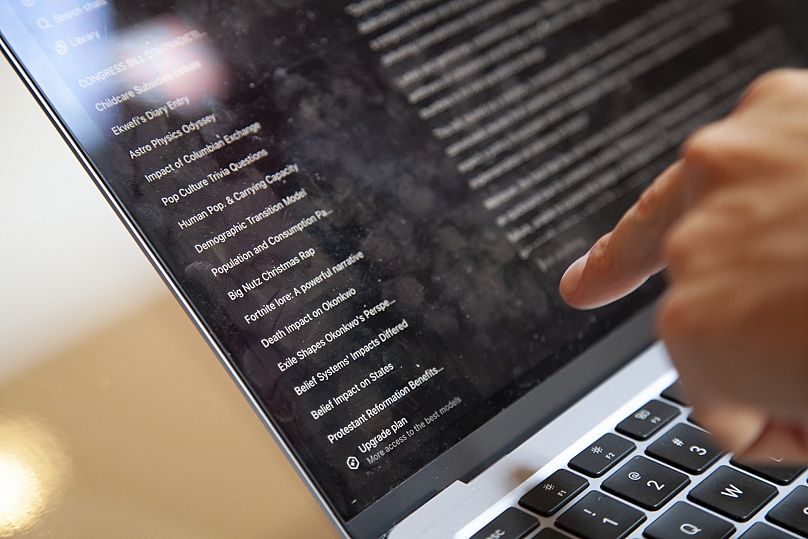The web’s fundamental principle just got scrapped — your access to information is changing forever

What does the internet look like?
If you were looking for an emblem to represent the internet as we have come to know it, you might well visualise a Google search box. The company has been the door to almost everyone’s experience of what the World Wide Web is because it has monopolised the primary point of access - search.
To many, the internet is search and search is the internet. How else could we navigate millions of pages and find the information we are looking for? And the power of search has allowed a plurality of sites to flourish.
For a few dollars, anyone can set up their own website. If they publish content people are looking for they can be discovered for free. If you like, there is a grand bargain where content creators provide content that Google can index and Google provides them with audiences.
Programmatic advertising (again monopolised by Google, but that’s another story) then allows website creators to earn a livelihood from their work.
Now, this is no utopian project. Google has made billions of dollars and often served results which are more commercially valuable for it than for the consumer.
More damagingly, low barriers to entry make it easy for bad actors to create websites containing misinformation, safe in the knowledge that if they get caught they can easily just set up another. These websites often successfully deceive search engines into ranking them higher than genuine rivals.
The plurality of information has, at times, been overwhelming, it can be hard to distinguish truth from propaganda. However, it did allow a diversity of media to grow up, with small, independent groups of journalists given a voice and the ability to challenge power.
The click economy and walled gardens
The search-based model of the World Wide Web works because it has a business model.
Websites are able to monetise attention through selling products and services to their visitors either directly or for third parties using advertising.
The search engines take first share of this attention, but they then pass it down the chain to another site.
This search model is not the only way the Web functions, but it is the dominant one. Research by BrightEdge found that around its peak in 2019, 68% of internet journeys started from a search.
The other model is that of social media, which relies on proposing content to users based on their passive signals - what content they have consumed previously, what other people like them are reading or watching.
Originally the social media model also fitted into the click economy: users could travel via links on sites like Facebook and Twitter to the websites which originated the content which could then get paid in attention.
Over time, however, social platforms began guarding their customers more carefully, attempting to imprison them within walled gardens and making links away to other sites less and less visible.
In order to incentivise their most valuable content creators, they then began to share some revenue directly. In other words, a small number of popular content creators could get paid directly by the social media platform rather than monetising attention themselves.
This model works for creators who could produce large volumes of content at relatively low cost, because the terms of the revenue share partnerships with the social platforms are not generous.
This saw many traditional media publishers, especially smaller ones, cutting their ties with the social media platforms and doubling down on the search model. This pattern was accelerated because many media adopted a subscription model, making every visit to their own website much more valuable and important than it had been previously.
Another aspect of the social media platforms’ "walled-gardens" approach was that, rather than sending users elsewhere to see news content about events in the world which could be disturbing or upsetting, the social media platforms were hosting this themselves.
Faced with accusations that they were not doing enough to check sensitive material, and noting that users did not want to keep watching this material in large quantities, they frequently downgraded the news in their algorithms.
As a result there is relatively little serious news content available on the most popular platforms like TikTok and Instagram. And even this is underrepresented in most users’ feeds.
The walled garden model of social media has not made the world better informed. It has not allowed independent, quality media to flourish. The Open Web, on the other hand, despite the commercial selfishness of search engines, has allowed new digital-only platforms to develop sustainably.
Most publishers are trying to reduce their dependence on Google and search. They want to form direct relationships with their readers and viewers. This is why you are so often asked to sign up to a newsletter or install an app: any route that does not pass by Google.
But to find new audiences, there really is no substitute for search. And so to start up a new website, as I did two years ago with globalsouthworld.com, search is almost the only way to tell people about your brand.
Zero-click search
This is why I, and so many others in my industry are so concerned that this model is about to be obliterated.
Now obliteration doesn’t mean elimination - it’s what the US air force did to Iran’s nuclear facilities and it’s still unclear what the damage level there was - but it does undoubtedly mean a sizeable change. Because we have entered the era of zero-click searches.
Broadly, if you search on an AI chatbot, it doesn’t tell you where to go to find the answer. It simply tells you the answer.
And, to compete, Google has integrated AI into its search and increasingly making it the default. Many searches no longer return a list of blue links, but a text answer.
As an analogy, it’s like changing the way we shop. Instead of heading out ourselves for ingredients to make dinner - with all the benefits (and risks) of discovering different ingredients and learning about the process and knowing exactly what is in our food - we simply order a takeaway.
Everything is assembled for us, and we never see or know exactly what ingredients were used. But here’s the important difference: the restaurant that is making the takeaway is not paying for the ingredients; it’s basically just stealing them.
In general, AI companies pay nothing for the content they use to provide answers to your questions.
So, you might expect, in a market economy, that the individual media publishers would simply stop the AI companies accessing their ingredients until they agreed to pay.
And there are signs that this is happening. US news agency the Associated Press and Business Insider-publisher Axel Springer have agreed deals with OpenAI, the maker of ChatGPT.
But the AI companies are only talking to the big businesses, it’s not really worth their spending time and effort to craft deals with smaller publishers. Effectively, they are making arrangements to get ingredients from the supermarkets but cutting out the independent traders.
And that’s where the analogy breaks down. Because news is not a commodity. While it might be hard to tell the difference between a carrot or a bag of flour from one store or another, news is not the same.
There are so many angles and nuances and decisions about what facts to communicate, which voices to include. And this is the benefit of media plurality.
Our advanced societies have so many niches and nano-communities who do not feel represented in the mass media.
In the zero-click world, we risk losing media plurality definitively.
Duncan Hooper is Head of Media at Impactum Group, working with sites including Global South World, Atlantico and World Visualized. He had led a number of international media teams including at Chinese broadcaster CGTN, Euronews and Microsoft.
Today



